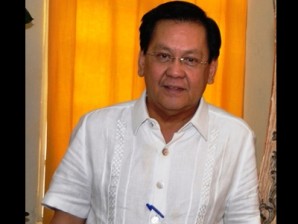The Senate’s current focus on the impeachment trial of Chief Justice Renato Corona could result in its failure to approve three banking bills that a global anti-money laundering body wants signed into law by May.
Some senators have warned that if the bills are not signed into law in two months, the Philippines would end up being blacklisted by the Financial Action Task Force (FATF), which could pose some difficulties for the international monetary transactions of overseas Filipino workers and domestic banks.
Scrutinize bank deposits
Two of the measures—the Terrorist Financing Suppression bill (Senate Bill No. 2676) and another (Senate Bill No. 3009), which proposes to remove certain requirements for the Anti-Money Laundering Council (AMLC) to be able to scrutinize a suspected launderer’s bank deposits—are now being debated in the Senate.
A third (Senate Bill No. 3123) seeking to expand the coverage of predicate crimes that would allow the AMLC to scrutinize bank deposits and increase the range of institutions required to report transactions of P500,000 and up is still with the committee on banks, financial institutions and currencies.
In a hearing Thursday, AMLC executive director Vicente Aquino expressed support for the third measure that requires casinos, jewelers, real estate agents, dealers in precious metals and stones and the like to report transactions that reach or exceed P500,000 to the AMLC.
The bill lists among predicate crimes that would make a bank account liable for AMLC scrutiny the following: bribery, kidnapping, carjacking, malversation of public funds, tax crimes, trafficking in persons, antifencing violations, illegal possession of firearms, explosives and ammo, and racketeering.
Approve by May
Aquino said the senators have assured him “they will do their best” to approve the three measures by May.
However, Sergio Osmeña III, the banks committee chairman, noted that the hectic schedule imposed on senators by the Corona trial could be an issue.
“It is possible but it’s not plausible,” he said when asked whether the Senate could pass the three bills in time for the FATF’s May deadline.
The Senate has only four legislative sessions left this month before it goes on a Lenten break. Sessions will resume on May 7.
The chamber’s legislative sessions have been severely hampered by the Corona impeachment trial whose hearings have been scheduled every afternoon since January 16.
Executive Secretary Paquito Ochoa wrote to Senate President Juan Ponce Enrile earlier this month to remind him that the FATF wanted the approval of the first two bills “not later than 31 December 2011.” He said Malacañang had certified the two measures as urgent.
‘Enhanced verification’
Senator Teofisto Guingona III said remittances of overseas Filipino workers (OFWs) would be subjected to “enhanced verification” by banks that would demand proof that the money to be sent home had been sourced legitimately.
“Maybe they would also be asked to produce their employment contracts, show papers to prove they are working abroad legally. If foreign banks would require more manpower just to deal with this, their overhead expenses could go up and they might just refuse transactions involving OFWs,” he said.
According to Guingona, even established corporations may be required to “fill out many forms, prove legitimate sources and make it very difficult for money to get in and out because of the blacklist.”
But SB 3009 has enough opponents in the Senate to make its approval by May questionable.
Senator Joker Arroyo, for example, objects to the ex parte provision that does away with the requirement for the AMLC to seek clearance from the Office of the Solicitor General and the Court of Appeals and inform a suspected launderer before it can scrutinize his or her deposits.
Enrile also has expressed reservations about SB 3009, especially after a photocopy and details of Corona’s signature card from the Philippine Savings Bank was leaked to House prosecutors.
He said the leak indicated the bank’s failure to secure a depositor’s personal details, which was a violation of the Bank Secrecy Law.
More problems
Both senators said the expansion of the Anti-Money Laundering Act’s coverage could present more problems in the future.
Guingona, however, insisted that the ex parte provision that Arroyo is against is necessary since informing a depositor that his accounts will be scrutinized would only make him withdraw his deposits.
“Based on experience, this is usually what happens. Remember Generals (Carlos) Garcia and (Jacinto) Ligot pulled out their deposits because they were notified. So we really need the ex parte,” he said.
The two generals referred to are suspected of appropriating large amounts from the Armed Forces budget.
Guingona believes the Senate can still approve the three bills despite time limitations.
“Right after the (legislative recess), we can speed up everything. By next week, it is possible that (the third bill) would already be presented to the plenary,” he said.
